
PROPERTY RIGHTS
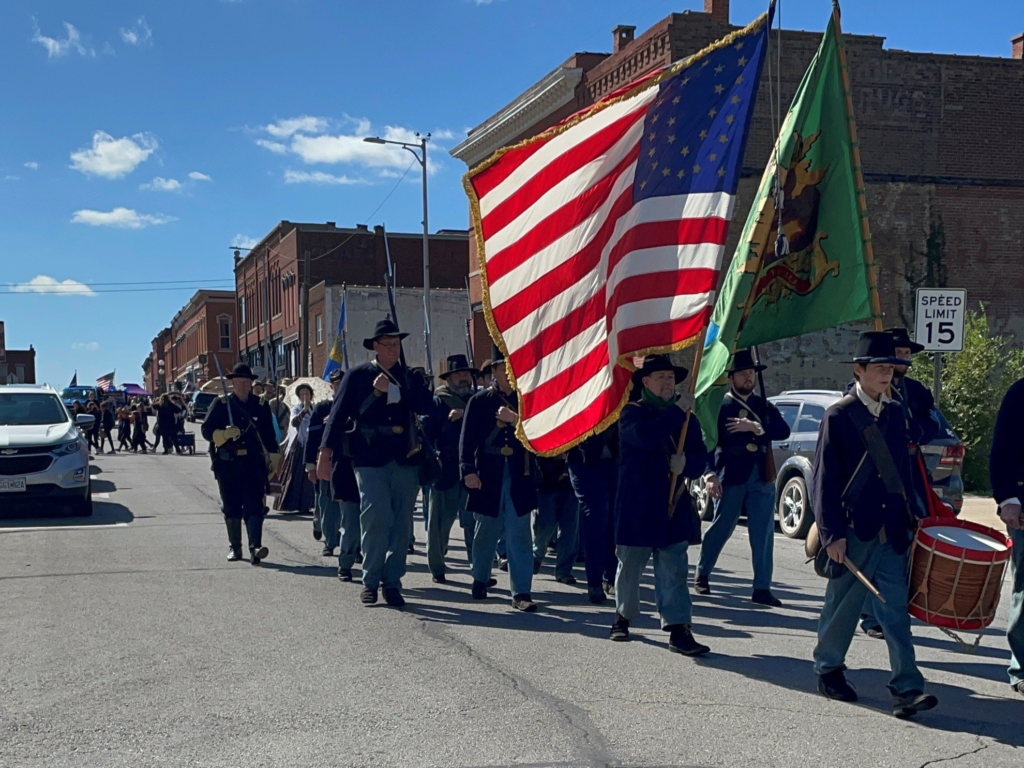
OUR BEGINNING
President George W. Bush approved Freedom’s Frontier in 2006. Which was built in tandem with the agricultural community almost twenty years ago. A small group of Kansans came together to create a way to honor our role in the Civil War, and to be sure our children know Kansas’ history.
Volunteers worked closely with Senator Pat Roberts’ office, Governor Mike Hayden. You can imagine how careful they were to protect farmers, ranchers, landowners, hunting rights and fishing rights.
Today, we have existed for almost 20 years. We have no relationship with any 30×30 program or planning which is much more recent.
Think of us as a network of museums and historical sites – like pinpoints on the map.

PROPERTY RIGHTS
Since we began, federal law forbids Freedom’s Frontier from:
- Owning property
- Interfering with land rights, water rights or zoning of any kind
- Inhibiting hunting or fishing rights
By law, the choice to join the heritage area lies entirely with the property owners. It is not possible to be “opted-in” without your permission.
- Only property sites which are historically significant are a part of Freedom’s Frontier.
- Property owners must request membership through a formal application process.
- If a property owner has not applied for membership, their property is NOT a part of the heritage area.
- There is no way a property may be opted-in without the property owner’s explicit permission.
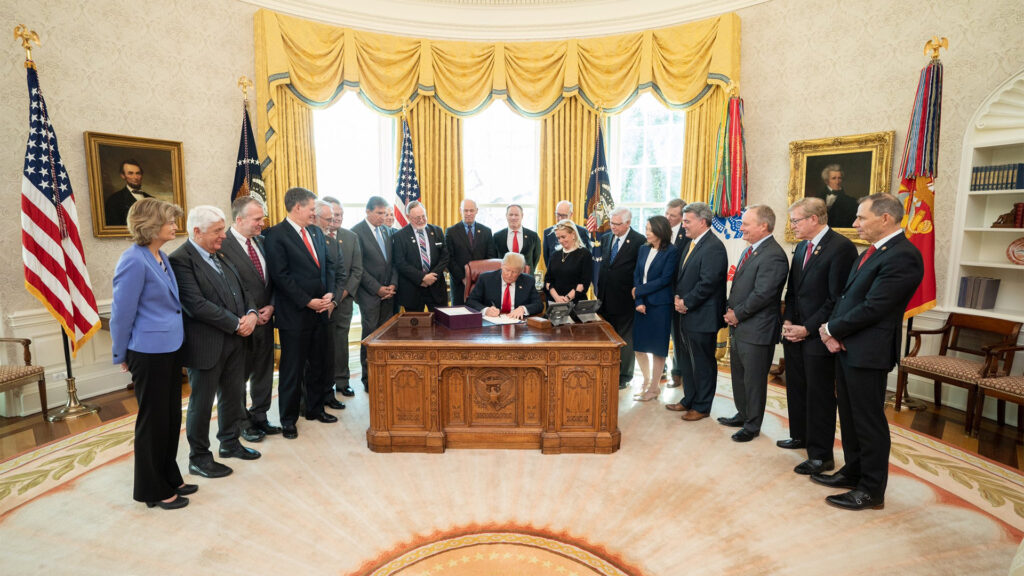
ECONOMIC DEVELOPMENT
Freedom’s Frontier only receives federal funds, philanthropic gifts, and grant funding. For every dollar invested in a heritage area, $5 is generated in the local economy. Our sites are advertised across the nation at National Parks and other heritage areas. This helps to drive increasing numbers of tourists.
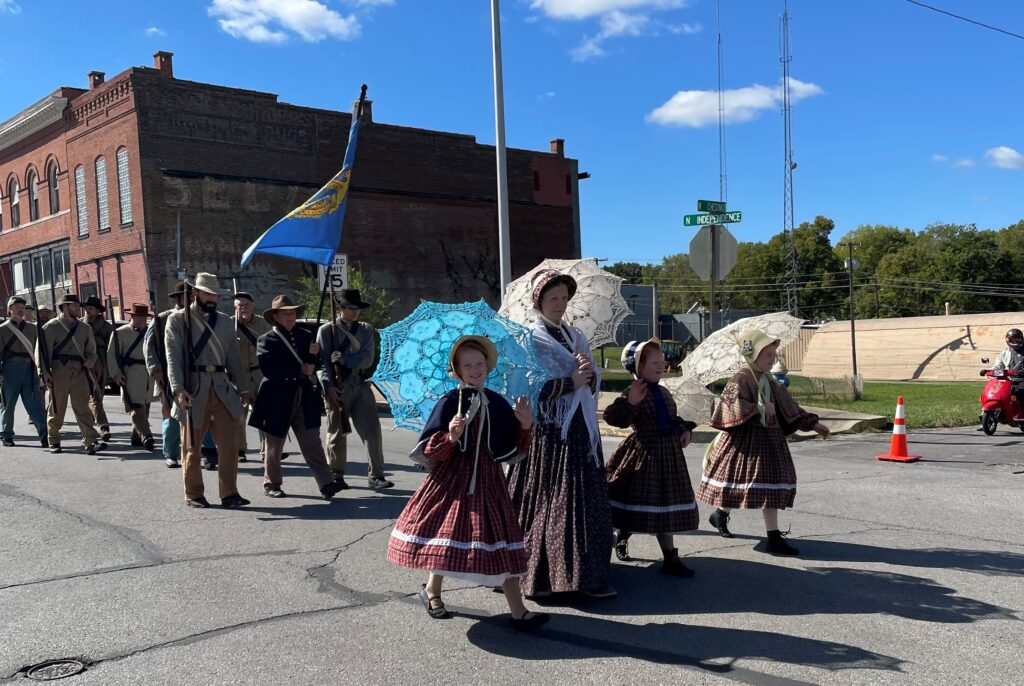
ENDANGERED SPECIES
We have had several questions regarding endangered species. We have no programs in this area – except our pollination effort. We have partnered with Rotary International to encourage pollination efforts at all our sites. This is similar to the efforts by the U.S. Department of Agriculture to foster bees and butterflies.
OUR BEGINNING
President Ronald Reagan created National Heritage Areas to preserve history and generate tourism without invading private property rights. (Use as caption under Reagan photo) President George W. Bush approved Freedom’s Frontier in 2006. Which was built in tandem with the agricultural community almost twenty years ago. A small group of Kansans came together to create a way to honor our role in the Civil War, and to be sure our children know Kansas’ history.
Volunteers worked closely with Senator Pat Roberts’ office, Governor Mike Hayden. You can imagine how careful they were to protect farmers, ranchers, landowners, hunting rights and fishing rights.
Today, we have existed for almost 20 years. We have no relationship with any 30×30 program or planning which is much more recent.
Think of us as a network of museums and historical sites – like pinpoints on the map.
PROPERTY RIGHTS
Since we began, federal law forbids Freedom’s Frontier from:
- Owning property
- Interfering with land rights, water rights or zoning of any kind
- Inhibiting hunting or fishing rights
By law, the choice to join the heritage area lies entirely with the property owners. It is not possible to be “opted-in” without your permission.
- Only property sites which are historically significant are a part of Freedom’s Frontier.
- Property owners must request membership through a formal application process.
- If a property owner has not applied for membership, their property is NOT a part of the heritage area.
- There is no way a property may be opted-in without the property owner’s explicit permission.
You may not be “opted in” without your explicit written permission — no site is a member unless they request it. Our borderline only shows which counties are eligible to have historic sites join. (caption under the image of our region).
ECONOMIC DEVELOPMENT
Freedom’s Frontier only receives federal funds, philanthropic gifts, and grant funding. For every dollar invested in a heritage area, $5 is generated in the local economy. Our sites are advertised across the nation at National Parks and other heritage areas. This helps to drive increasing numbers of tourists.
ENDANGERED SPECIES
We have had several questions regarding endangered species. We have no programs in this area – except our pollination effort. We have partnered with Rotary International to encourage pollination efforts at all our sites. This is similar to the efforts by the U.S. Department of Agriculture to foster bees and butterflies.
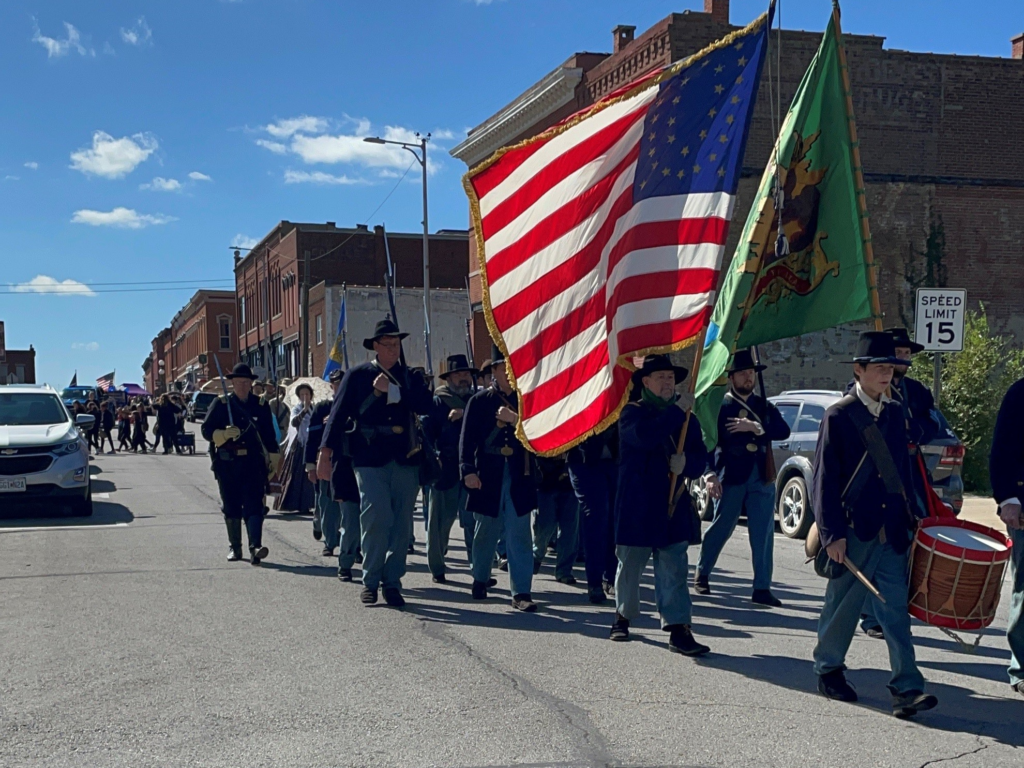
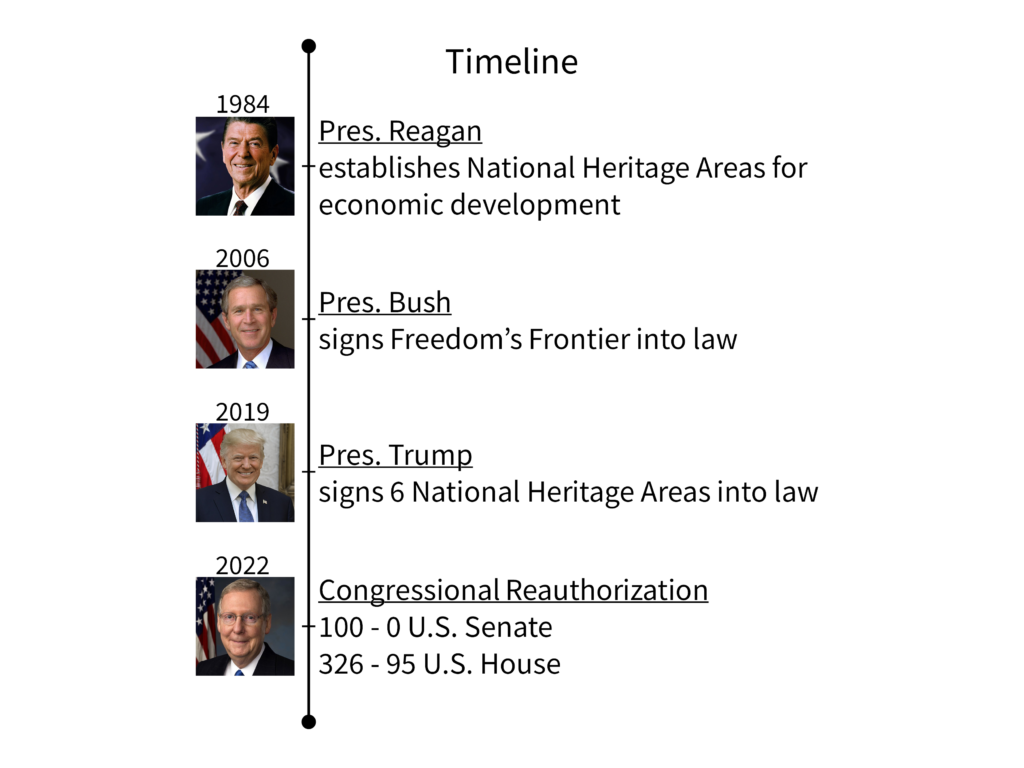

WE PROTECT PRIVATE PROPERTY RIGHTS IN OUR AREA
We never interfere with private property.
We never purchase private property.
We never impose local zoning changes.
We never interfere with water rights.
We never restrict landowners’ rights.
National Heritage Areas do not affect private property rights within their designated areas, period.
Though NHAs are funded through the National Park Service, they are not National Park units. NPS does not assume ownership of land inside heritage areas or impose land use controls. NHAs are – and will always be – community-driven, based on cooperation. Participation in an NHA is entirely voluntary.
Legislation that authorizes National Heritage Areas includes specific language that guarantees that NHAs will protect private property rights. In fact, the National Heritage Area Act of 2022 states: “Nothing in this section…abridges any right of a public or private property owner, including the right to refrain from participating in any plan, project, program, or activity conducted within a National Heritage Area.”
Indeed, a review of NHAs by General Accounting Office directed by Congress was unable to find a single instance of an NHA directly affecting how private property can be used. Groups interviewed for the study included private property rights advocates such as the Heritage Foundation, the American Land Rights Association, and the Private Property Foundation of America.
Read our authorizing legislation. (Pub. L. 109-338, title II, subtitle E, §§264(i)(1), 266, Oct. 12, 2006, 120 Stat. 1783.)
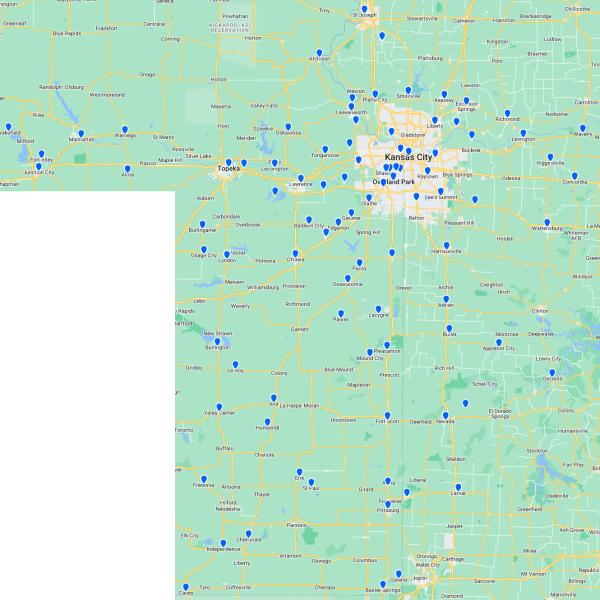
Read our authorizing legislation. (Pub. L. 109-338, title II, subtitle E, §§264(i)(1), 266, Oct. 12, 2006, 120 Stat. 1783.)